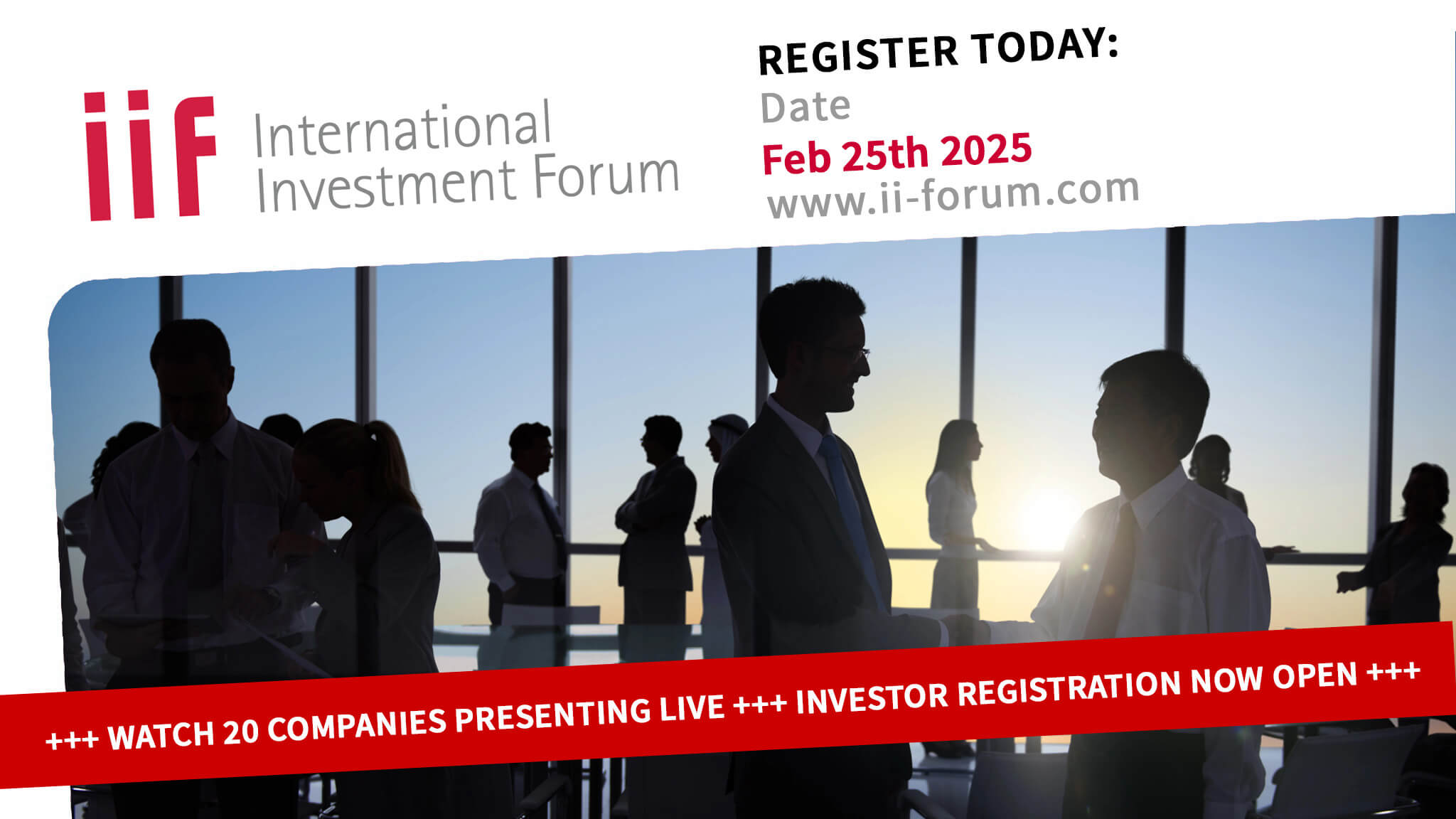February 19th, 2025 | 07:10 CET
Bayer, Vidac Pharma, Pfizer – Dementia, cancer, obesity: The race for the billion-dollar markets
The pharmaceutical industry is in the throes of a major upheaval – it is no longer just about research but also about big money. Whoever is ahead now secures not only fame but, above all, extremely lucrative markets. Looking at how companies are currently driving forward mergers or acquiring startups, it is clear: The battle for the next blockbuster drugs has long since become a billion-dollar gamble. There is a lot of activity, especially in areas such as cancer, dementia, and obesity. Everyone wants to be the first to patent the golden active ingredient. We take a look at three companies that are researching the next blockbusters.
time to read: 5 minutes
|
Author:
Armin Schulz
ISIN:
BAYER AG NA O.N. | DE000BAY0017 , VIDAC PHARMA HOLDING PLC | GB00BM9XQ619 , PFIZER INC. DL-_05 | US7170811035
Table of contents:

"[...] As a company dedicated to developing treatments for rare heart diseases, we see this as an opportune moment to contribute to the fight against heart disease and make meaningful strides in improving heart health worldwide. [...]" David Elsley, CEO, Cardiol Therapeutics Inc.
Author
Armin Schulz
Born in Mönchengladbach, he studied business administration in the Netherlands. In the course of his studies he came into contact with the stock exchange for the first time. He has more than 25 years of experience in stock market business.
Tag cloud
Shares cloud
Bayer – Art sale, Pharmaceutical Innovations, and Strategic Decisions
The Leverkusen-based company Bayer is selling a significant portion of its art collection: around 800 works, including pieces by Beckmann and Warhol, are to be auctioned off at Van Ham in Cologne in the summer of 2025. The total proceeds are estimated at over EUR 4.5 million. The background to this is the adaptation to modern working environments, in which classical art is becoming less relevant. Historically significant works and contemporary funding projects will remain within the Company. However, the sale is more symbolic for Bayer – its net liabilities of EUR 35 billion far exceed the auction amount.
On February 11, Bayer received the green light for the heart drug Acoramidis (Beyonttra™) in the EU. The drug is used to treat the rare and often fatal transthyretin amyloidosis and has been shown to significantly reduce mortality and hospitalizations in clinical trials. In 2024, Bayer secured the marketing rights in Europe from US developer BridgeBio. Analysts see a moderate revenue potential of EUR 260 million by 2030, while the Company is hoping for a new blockbuster with revenue of more than EUR 1 billion. A successful product would help offset the patent losses of the blood thinner Xarelto™, which is increasingly facing generic competition.
At the same time, Bayer is driving forward the expansion of the kidney and heart drug Kerendia™. After regulatory filings in the EU, US, and China, Japan is now to follow, where around 720,000 patients could benefit from the planned indication. Kerendia™ already generated EUR 270 million in revenue in 2023 and is expected to break the billion mark by 2027. Together with new therapies such as Nubeqa™, the portfolio should compensate for the effects of expiring patents. However, the Company still faces enormous challenges: In addition to the debt burden from the Monsanto acquisition, US lawsuits and a tight agricultural market continue to weigh on the share performance. The share price has been trending sideways since mid-January and currently stands at EUR 21.10.
Vidac Pharma - On the way to next-gen cancer therapy
Vidac Pharma is positioning itself as an innovator with two highly interesting projects: The systemic agent VDA-1275 shows synergistic effects with chemotherapies in preclinical studies. In colorectal cancer models, the combination with Cisplatin reduced tumor size by around 39%. This could lead to reduced chemotherapy dosages and fewer side effects. At the same time, VDA-1102 stands out: Originally developed as an ointment for skin cancer, the newly formulated subcutaneous variant crosses the blood-brain barrier, leading to initial successes in pediatric brain tumors. The aim is to exploit the Warburg effect, a metabolic mechanism that could enable new cancer therapies.
The Company is continuing to strengthen its market position. New patents for VDA-1275 and VDA-1102 provide long-term protection for the technology, while partnerships with clinics in Israel are accelerating trials for brain tumors. Centroderm has been commissioned to conduct a 2nd Phase 2B study in actinic keratosis. This clinical trial is also planned for cutaneous T-cell lymphoma after the successful Phase 2A study. In February, CEO Dr. Max Herzberg will be on a roadshow in Frankfurt, Munich, and Zurich and will be making appearances at two prestigious conferences. The aim is to raise capital for the Phase 2B/3 studies and initiate strategic partnerships. The Sachs Annual European Life Sciences CEO Forum 2025 best suits the latter, while the Keiretsu Forum focuses on angel investors.
The Company is focusing on VDA-1102 because the studies are the most advanced. Discussions are already underway with the European Medicines Agency to obtain approval as a first-in-class therapy for dermatologists. VDA-1275 is also expected to enter clinical trials in the third quarter. Successful approval of VDA-1102 in dermatology could multiply the Company's value many times over. With a pipeline ranging from skin cancer to glioblastoma and a focus on unmet needs, such as rare pediatric tumors, the Company is broadly positioned in the booming oncology sector. The stock is currently available for EUR 0.675.

Pfizer - Strong year-end, Mixed signals
Pfizer ended 2024 with a surprisingly robust fourth quarter. Revenue rose 7% to USD 63.6 billion, while adjusted earnings per share increased by 69% to USD 3.11. In addition to COVID-19 products, the main drivers were growth in the non-COVID portfolio, including oncology and immunology products. The acquisition of the biotech company Seagen also contributed to the Company's positive performance. For 2025, the Company reaffirmed its forecast of USD 61-64 billion in revenue and USD 2.80-3.00 in adjusted EPS. Despite the solid numbers, the reaction of investors was somewhat muted.
Pfizer is facing structural risks. The upcoming loss of patent protection for blockbusters such as Eliquis (2026) and Prevnar (2027) could result in a loss of sales of up to USD 18 billion by 2030. In addition, regulatory changes in the US healthcare system, including the redesign of Medicare Part D, are weighing on margins. Analysts expect this to result in a 1.6% decline in sales in 2025. Criticism of the acquisition strategy from activist investors such as Starboard Value and a declining return on invested capital (ROIC of 25.4% to 2.7% since 2022) are also causing uncertainty.
Pfizer's pipeline projects offer potential turning points: The positive Phase 3 study of the cancer drug Talzenna in combination with Xtandi could open up new market opportunities. In addition, hopes are pinned on the experimental anti-obesity drug Danuglipron, whose market entry by 2027 would enable access to the lucrative GLP-1 market. In the short term, the attractive dividend yield of 6.6% and the technical support level at USD 25 could entice investors. However, whether this is enough to compensate for the structural burdens remains questionable. The share is currently trading at USD 25.53.
In summary, Bayer is selling parts of its art collection while focusing on new drugs such as Acoramidis and Kerendia, to compensate for patent losses. Vidac Pharma is developing promising cancer therapies, in particular VDA-1102 has already completed a successful Phase 2B study. Pfizer presented strong annual results for 2024, but is also facing patent losses and is pinning its hopes on new drugs such as Talzenna and Danuglipron. The pharmaceutical industry is, therefore, competing fiercely for billion-dollar markets in the treatment of cancer, dementia, and obesity.
Conflict of interest
Pursuant to §85 of the German Securities Trading Act (WpHG), we point out that Apaton Finance GmbH as well as partners, authors or employees of Apaton Finance GmbH (hereinafter referred to as "Relevant Persons") may hold shares or other financial instruments of the aforementioned companies in the future or may bet on rising or falling prices and thus a conflict of interest may arise in the future. The Relevant Persons reserve the right to buy or sell shares or other financial instruments of the Company at any time (hereinafter each a "Transaction"). Transactions may, under certain circumstances, influence the respective price of the shares or other financial instruments of the Company.
In addition, Apaton Finance GmbH is active in the context of the preparation and publication of the reporting in paid contractual relationships.
For this reason, there is a concrete conflict of interest.
The above information on existing conflicts of interest applies to all types and forms of publication used by Apaton Finance GmbH for publications on companies.
Risk notice
Apaton Finance GmbH offers editors, agencies and companies the opportunity to publish commentaries, interviews, summaries, news and the like on news.financial. These contents are exclusively for the information of the readers and do not represent any call to action or recommendations, neither explicitly nor implicitly they are to be understood as an assurance of possible price developments. The contents do not replace individual expert investment advice and do not constitute an offer to sell the discussed share(s) or other financial instruments, nor an invitation to buy or sell such.
The content is expressly not a financial analysis, but a journalistic or advertising text. Readers or users who make investment decisions or carry out transactions on the basis of the information provided here do so entirely at their own risk. No contractual relationship is established between Apaton Finance GmbH and its readers or the users of its offers, as our information only refers to the company and not to the investment decision of the reader or user.
The acquisition of financial instruments involves high risks, which can lead to the total loss of the invested capital. The information published by Apaton Finance GmbH and its authors is based on careful research. Nevertheless, no liability is assumed for financial losses or a content-related guarantee for the topicality, correctness, appropriateness and completeness of the content provided here. Please also note our Terms of use.




